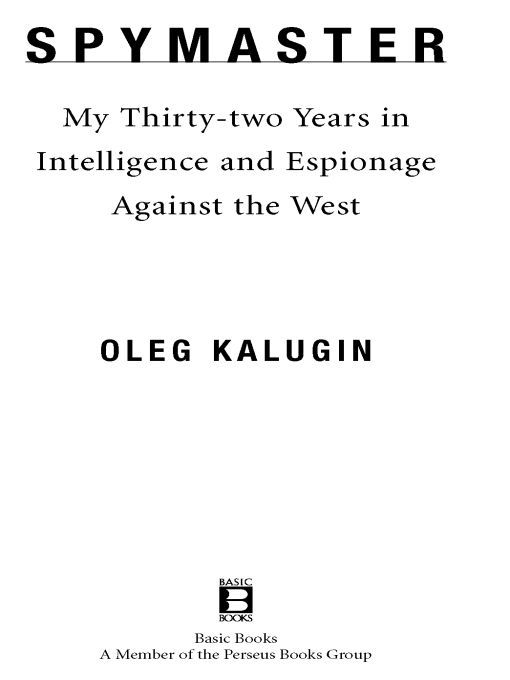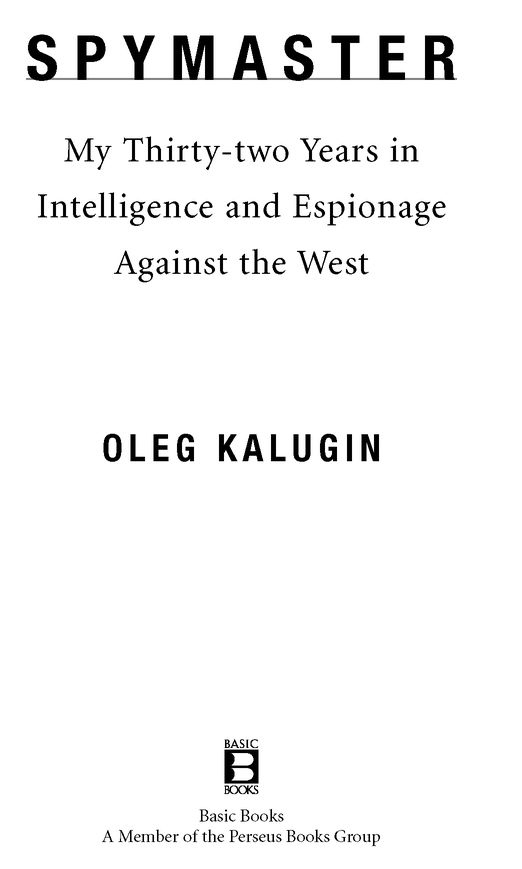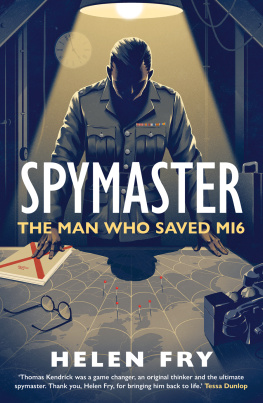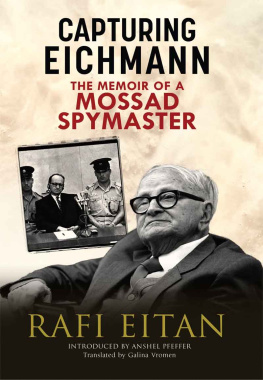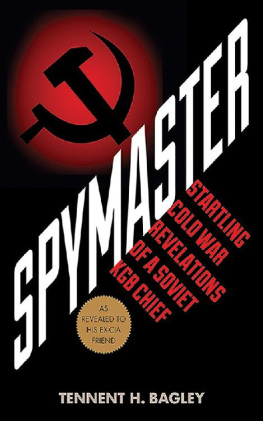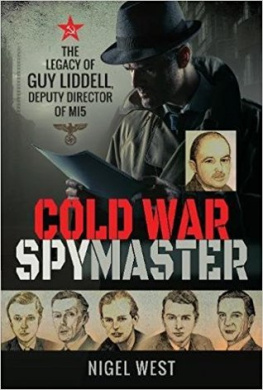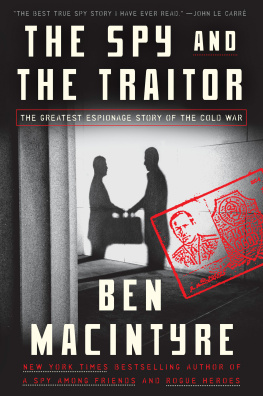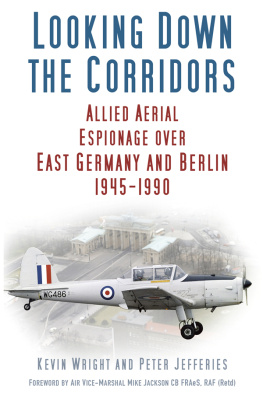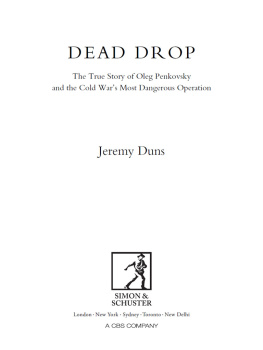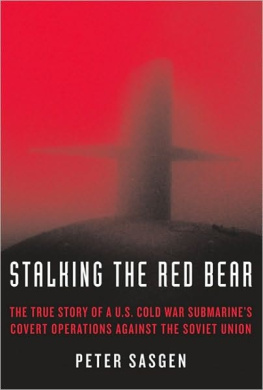Table of Contents
PROLOGUE
The ones whose souls and hearts are filled
with high purpose, these are living ones.
VICTOR HUGO
The sun was going down as I finished my meal in a posh eatery on the edge of Montego Bay in eastern Maryland. Mesmerized by the changing glow of the sunset, I fell into a pensive mood, sad and yet inwardly content. My thoughts wandered to my youthful years and then returned to the chores of my new life. Matthew Arnolds lines of poetry, recalled from yesteryear, cheered me: Is it so small a thing to have enjoyed the sun, to have lived light in the spring, to have loved, to have thought, to have done?
My journey through time is not over, and yet... My God! Did I ever think or imagine that I, a devout Communist and KGB general, would turn against the Soviet system, confront and challenge it openly, and then come to live in America and stay here for the rest of my life? How did it happen? Why?
In the summer of 1959, I found myself in New York City, having just completed a year of study at Columbia Journalism School. For a twenty-four-year-old Soviet kid, it had been a dream year, capped by a three-week trip across America. My presence in the United States at the height of the cold war had generated a lot of interest. The New York Times even wrote a profile of me entitled A Popular Russian. The piece described me as a real personality kid and went on to say that I was the son of a Leningrad city clerk and was chosen for the Fulbright student exchange by my professors at Leningrad University and Soviet educational authorities. I had to chuckle, of course. It was all a lie.
The Soviet educational establishment had not sent me to America for a year. The KGB had. I was not, as the article described, a bright young Soviet journalist. I was a green KGB officer, the son of a man who also had worked for the Soviet secret police. And in August 1959, I was on the verge of plunging into my first espionage case, a tangled affair that would launch my career in the spy game but would later return to haunt me, eventually leading to a falling out with the KGB.
That August, just a few weeks before my return to the USSR, Soviet officials asked me to host an exhibit of Soviet achievements in technology and culture. I was happy to do it, in part for the money, but also because I was a true believer in Communism and the Soviet cause. It was the peak of Premier Nikita Khrushchevs liberalization of Soviet society. Our military might was growing, and our sciences were roaring ahead. Just two years before, we had launched the worlds first satellite, Sputnik. This achievement convinced us and the world that we were closing fast on Khrushchevs oft stated goal of catching and overtaking America.
The exhibit at the Columbus Circle Coliseum on 59th Street featured luxurious Soviet limousines, the latest furs, fashionable footwear, and row upon row of radios, tape recorders, and cameras. I knew the show was something of a Potemkin village, but I overlooked that and figured it would demonstrate to America what the Soviet Union, just fourteen years after the war that had devastated our country, was capable of doing. I was assigned to the cultural section where, surrounded by books and paintings, I was to expound on the glories of socialist realism. One of my first visitors was Vice President Richard Nixon. He came on opening day and wandered into my section, a jowly, glum-looking man who was not particularly friendly. Once I overcame my confusion at seeing this celebrity, I buttonholed him and began my spiel. Soon, however, I was elbowed aside by a phalanx of aides, bodyguards, and Soviet officials.
I spent several weeks preaching the Soviet gospel to an occasionally hostile American public, and by the end I was worn out and hoarse. One hot, muggy evening in late August, I shuffled out of the exhibition hall and began making my way up Broadway, heading for my dwelling. It was about seven oclock, and I was barely two blocks from the coliseum when a bespectacled, gray-haired man accompanied by an attractive Chinese woman approached me.
We saw you at the exhibition, said the man. May we talk to you?
With those words began my fateful relationship with the spy the KGB soon came to call Cook.
Cook spoke to me in English, but I immediately recognized his Russian accent. Though I was exhausted and hardly wanted to become embroiled in another debate, I answered in Russian that I could talk with them. And when this tall stranger, who introduced himself as Anatoly, began to speak, my interest was piqued. After complimenting me on my English, he criticized me for not being staunch enough in my defense of Communism.
Dont you feel the Soviet Union is going astray, trying to emulate America? Anatoly asked, as the three of us stood on the Manhattan sidewalk in the summer twilight. Your country is a great one. It has its own path. Socialism should be free from all this bourgeois stuff.
It was a rarity, of course, to hear someone in America criticizing Soviet Communism for being insufficiently orthodox. Nevertheless, I was not interested in listening to his political philosophy, so I decided to steer the conversation in a different direction, more in line with my professional training.
What do you do? I asked.
I work for Thiokol, Anatoly responded, referring to the giant chemical company.
Really? I said. And whats your line of work?
I am a rocket engineer, he replied.
My fatigue disappeared immediately.
Why should we stand here talking on the street? I said. Lets go to a cafeteria.
We drank coffee and ate pastry at a cafeteria on 63rd Street, and I tried to appear nonchalant as I questioned Anatoly and his wife. He told me he was from a peasant family in the Kuban region of southern Russia. After working as a translator for the German army, he had retreated with Nazi forces and eventually emigrated to America. He studied to be a chemical engineer and landed a job at Thiokol.
His wife, the daughter of the vice president of the Chinese Academy of Sciences, was a Maoist who had convinced her husband of the righteousness of the Communist cause. She had persuaded him that it was repulsive to work for a company so closely tied to the military-industrial complex. My hopes were rising steadily, and then Anatoly dropped this piece of news: Thiokol was involved in the production of solid rocket fuel, and he was working on the project.
I could barely contain myself as I got their phone number and suggested that we meet again. But before we parted, I returned to Anatolys critical remarks about Khrushchevs reforms. You denounce the Soviet leader for deviating from the true path of socialism, I said. But look, the Soviet Union is way behind the United States in economic might, scientific and technological prowess. We have to adjust to the realities of life. If you are a true believer in socialism, why dont you help us catch up with the U.S.? Thatll be your contribution to the eventual triumph of the socialist system. Anatoly looked up at me, puzzled: How can I help?
Why dont you share what you have access to, with our scientific community? I asked with my heart beating wildly.
To my relief and delight Anatoly did not hesitate. Okay, he said. Im ready. The next morning I skipped work at the exhibition and went to see Fyodor Kudashkin, our KGB contact at the Soviet mission in New York. He was interested but skeptical. This may be an FBI setup, he said. You have no diplomatic immunity. They will arrest you on the spot. It will not only end your career, but will lead to embarrassing complications for our country. It was difficult for me to argue with an experienced intelligence officer like Kudashkin. Who was I, after all? Just a trainee, a rookie. But one argument seemed to impress my supervisor. You may be right, I said. But Anatoly was so knowledgeable about Marxism, so eloquent and passionate in his advocacy of socialist ideas; that, Im sure, no FBI agent can do.

